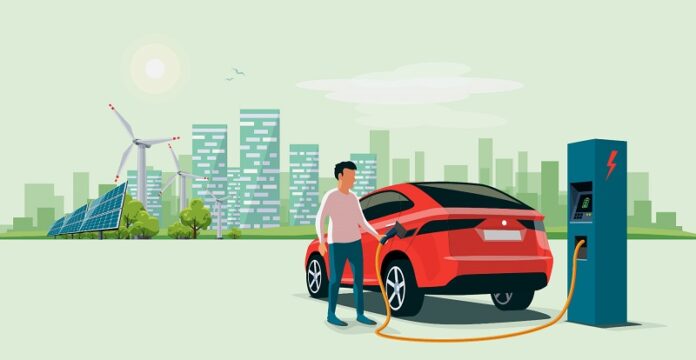More and more electric cars are being seen around the streets nowadays…
Car makers are going electric left and right…
The change is well underway… but is it time for you to go electric and buy an EV?
To answer that question, you have to take many factors into account.
This is your ultimate guide to everything you need to know about going electric…
Let’s dive into it.
Are EVs Eliminating Fuel Combustion Vehicles in the Near Future?
Many governments around the world are encouraging the production and promoting EVs. At the same time, trying to limit the sale of gas and diesel vehicles.
Let’s sum it up in numbers…
Back in 2010, electric cars around the streets were less than 1% of all cars. But in 2020, they make up 5%, a small number at first impression, but if you imagine the number of cars in the world, it’s a dramatically huge increase, and it all happened in the last two years.
And if you do the math on this one, EVs will form up to more than 80% of cars by 2030 with this increase. When it comes to battery, according to Fortune Business Insights™, the global lithium market size was USD 4.09 billion in 2019 and is projected to reach USD 8.24 billion by 2027, exhibiting a CAGR of 9.2% during the forecast period
And as technology advances, an electric car value will decrease and become more affordable.
And the question arises: Are we looking at a full-blown transformation?
Probably.
But in the end, the market has the ultimate impact on which direction this wave goes.
But do you want to ride this wave?
Let’s compare…
Distance
Probably the first question you ask yourself when thinking about EVs.
There’s no specific number of kilometers or miles an average electric car can give you with a full battery. But in general, a diesel or gas car can give you a significantly better distance between refuels.
Should this be a concern? It depends on the distance.
If you only use your car to drive around the city you live in, this shouldn’t be a concern for you. But if you travel often, you should consider getting a car with good distance. EVs can give you between 100 to 300 miles between recharges and maybe more, depending on the car.
Refueling & Recharging
If you compare the time you need to recharge or refuel your car VS the distance it gives you on the road, an electric car would sound inconvenient because it takes you hours to recharge for the same distance a car running on fuel will give you in a five-minute refuel stop.
This should greatly influence your decision because if your schedule allows you to recharge your vehicle overnight, you have no problem.
Cost
How much are you willing to pay for an eco-friendly car?
Definitely much more than an internal-combustion equivalent… to give you a scale, you can expect to pay $35,000 on an electric car when its internal-combustion equivalent costs you about $21,000. Big difference.
This begs the question, how much is charging saving you compared to fuel?
This depends on your country. However, for a 60 kW battery (on an electric car, it’ll probably give you 300 Km), you’re looking at $10 per recharge.
If you’re interested in going electric and currently own a muscle car, you could still catch up and sell your used car for a good price to buy the EV.
Performance
In terms of acceleration, Electrical cars are definitely better because they have the power you need at the time you need it. That’s because it doesn’t need to use the gas power to hit a certain r.p.m (rounds per minute) to get the full acceleration potential, unlike gas-powered cars.
This means if you’re driving inside the city, you’re better off driving an electric car rather than an internal combustion vehicle, where the speed limit is 60 km/h.
However, if your work or lifestyle depends on long drives, you’re better off riding a gas-powered car because it allows for more speed, and you’ll be getting wherever you’re going faster on roads with a higher speed limit.
Experience
Car makers have tried hard to make the experience similar for both EVs and gas cars, so the experience would almost be the same for you, except for some small differences.
For instance, you won’t be hearing any noise coming from the engine driving an electric car. You’ll probably get in, hit the start button, get baffled because you hear no noise coming from the engine, and think that your car didn’t start.
There are no gears… an engine in an electric car functions very differently than a combustion engine (drawing energy directly from the battery into a different transmission system). This means you won’t feel the shift in gear or anything, only a faint sound coming from the engine.
So, will going green suit you better?
Only you can answer that question. You have to weigh up what you need your car to give you against what an electric car can actually do. And how does the value of your car hold up against its EV equivalent? Generally, environment-friendly vehicles are becoming more feasible and suitable for many people as time passes, and this seems the direction many countries and car making companies are going.








